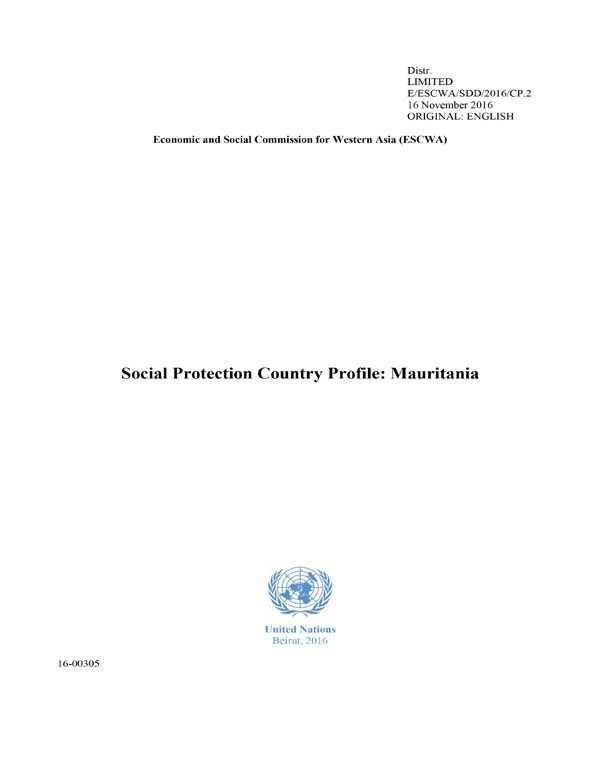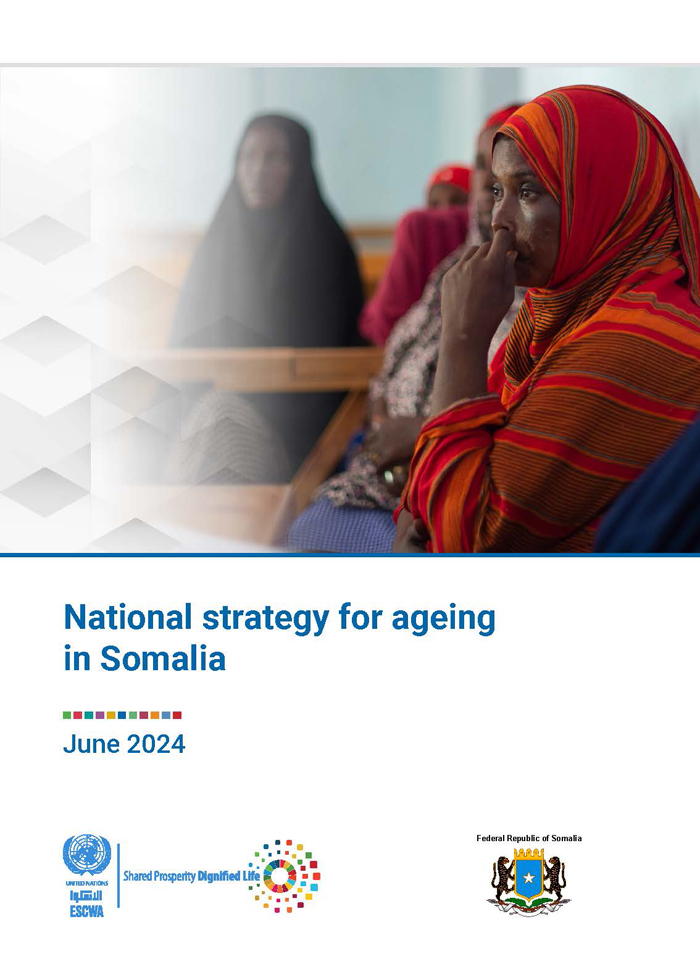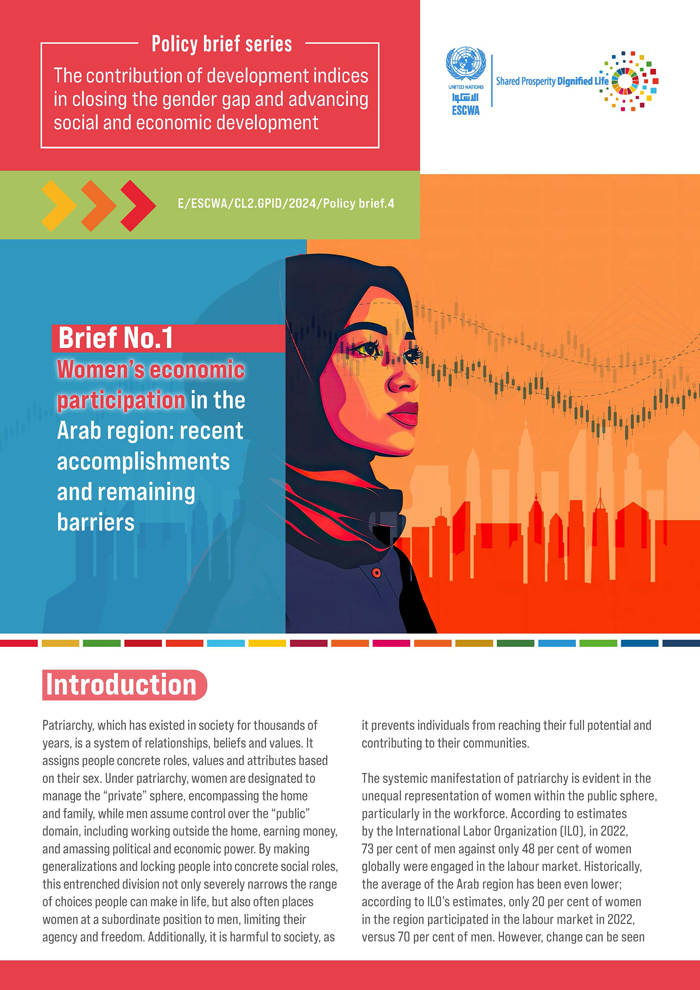
ESCWA Publication: E/ESCWA/SDD/2016/CP.2
Country: Islamic Republic of Mauritania
Publication Type: Reports & studies
Cluster: 2030 Agenda and SDG Coordination
Focus Area: Inclusive development, Future of employment
Initiatives: Reforming social protection systems
SDGs: Goal 1: No Poverty, Goal 2: Zero Hunger, Goal 3: Good Health and Well-Being, Goal 8: Decent Work and Economic Growth, Goal 10: Reduced Inequalities, Goal 16: Peace, Justice and Strong Institutions
Keywords: Disability, Disability benefits, Health insurance, Health policy, Health programmes, Mauritania, National health insurance, Old age benefits, Pension schemes, Public welfare, Social safety nets, Social security, Social security contributions, Social security legislation, Social welfare, Subsidies, Survivors benefits, Unemployment insurance
Social protection country profile: Mauritania
January 2017
This report presents a comprehensive profile of social protection in Mauritania. It covers pensions, health care, cash transfers, and food and energy subsidies, as well as other social insurance and social assistance programmes in place in the country.
The report then discusses the challenges facing the social protection system in Mauritania, including low coverage, fragmentation and lack of targeting. The health system has seen considerable improvements in recent years, but lack of support for the poorest and supply problems in rural areas still impede the achievement of universal coverage.
Related content
Inclusive development
, Future of employment
,
This report presents a comprehensive profile of social protection in Mauritania. It covers pensions, health care, cash transfers, and food and energy subsidies, as well as other social insurance and social assistance programmes in place in the country.
The report then discusses the challenges facing the social protection system in Mauritania, including low coverage, fragmentation and lack of targeting. The health system has seen considerable improvements in recent years, but lack of support for the poorest and supply problems in rural areas still impede the achievement of universal coverage.



